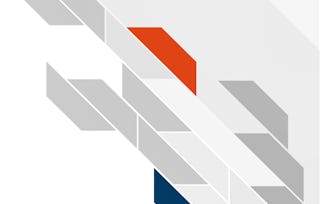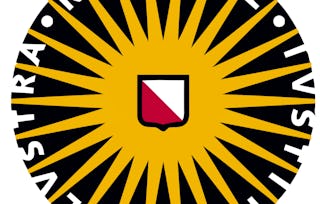The course provides a broad view of how to become and progress as a researcher. It spans over a wide range of topics, from the historical development of scientific thought to research methodology, to the pragmatics of publication, research funding, evaluation, and promotion in a researcher’s career. It also stresses the ethical aspects of research. Although the course speaks about scientific research in general, it especially focuses on the field on Information and Communication Science and Technology.

Being a researcher (in Information Science and Technology)

Being a researcher (in Information Science and Technology)

Instructor: Carlo Ghezzi
19,295 already enrolled
Included with
208 reviews
Recommended experience
What you'll learn
Research methodology, pragmatics, ethics.
Skills you'll gain
Details to know

Add to your LinkedIn profile
6 assignments
See how employees at top companies are mastering in-demand skills

There are 6 modules in this course
Week 1 has an introductory and motivational purpose. It faces the following questions: What is science? What is scientific research? What is the relation between scientific progress and the progress of society? What is the relation between research and innovation? Why should researchers engage themselves publicly?
What's included
4 videos1 assignment
Week 2 focuses on research methods. It discusses the interplay between invention — the creative act that identifies an interesting open problem and a possible solution — and validation — the meticulous process through which the identified solution is critically evaluated. It briefly discusses the historical evolution of the notion of a “scientific method”, through which research results are validated, mainly developed in the context of physical and natural sciences. Then it broadens the analysis to other kinds of research, and in particular ICST research.
What's included
6 videos1 assignment
The results of research (its products) are used to develop further research and lead to industrial innovations and societal changes. Week 3 focuses on the diffusion process of research products. The main way of diffusing research results is through scientific publications. The traditional publication process is analysed and recent trends towards open access are also discussed. Other kinds of research products, which take the form of artifacts, like data sets or research prototypes, are also discussed.
What's included
6 videos1 assignment
Week 4 focuses on the researcher’s career progress in his/her professional life, from being a researcher-in-formation to becoming a junior independent researcher to maturing into an established research leader. In particular, it discusses the skills one needs to acquire and provides tips of advice on how to progress successfully.
What's included
4 videos1 assignment
Week 5 focuses on evaluation in research. Evaluation is key to research, as for any intrinsically competitive human endeavor. Researchers are evaluated for hiring, funding, and promotion. Research units (groups, departments) are also evaluated for funding. Even global institutions (like universities) are evaluated and ranked internationally. Traditionally, evaluation is performed via peer review. Increasingly, other forms of evaluation based on quantitative indicators — such as bibliometric indicators — have been emerging and are increasingly used. Quantitative indicators are discussed and critically analyzed.
What's included
4 videos1 assignment
Week 6 focuses on the ethical issues involved in doing research. It defines the notions of ethics and misconduct. It discusses misconduct in proposing, performing, reviewing research or reporting research, focusing in particular on plagiarism, breach of confidentiality, conflict of interest. Possible ethical aspects involved in the specific research are also discussed. Research can involve or affects humans, other organisms, or the environment. This is traditionally well understood, e.g. in life sciences. Increasingly research in all areas of technology is getting closer to humans and touches ethical sensitive issues.
What's included
4 videos1 assignment
Instructor

Offered by
Explore more from Research Methods
 Status: Free Trial
Status: Free TrialUniversity of California, Davis
 Status: Preview
Status: PreviewJohns Hopkins University
 Status: Free
Status: FreeUtrecht University
 Status: Preview
Status: PreviewThe Hong Kong University of Science and Technology
Why people choose Coursera for their career

Felipe M.

Jennifer J.

Larry W.

Chaitanya A.
Learner reviews
- 5 stars
84.13%
- 4 stars
13.94%
- 3 stars
0.96%
- 2 stars
0%
- 1 star
0.96%
Showing 3 of 208
Reviewed on Oct 23, 2022
There were some difficulties in understanding complex terms, but it helped me a lot in knowing many unknown aspects of the scientific research community
Reviewed on Jul 1, 2024
An introduction to the scientific research process. It is useful for those at the beginning of their career. And for those who rely on scientific research.
Reviewed on Sep 13, 2020
It,s a very good sasen to me and I learn about more den to good ...I am happy

Open new doors with Coursera Plus
Unlimited access to 10,000+ world-class courses, hands-on projects, and job-ready certificate programs - all included in your subscription
Advance your career with an online degree
Earn a degree from world-class universities - 100% online
Join over 3,400 global companies that choose Coursera for Business
Upskill your employees to excel in the digital economy
Frequently asked questions
To access the course materials, assignments and to earn a Certificate, you will need to purchase the Certificate experience when you enroll in a course. You can try a Free Trial instead, or apply for Financial Aid. The course may offer 'Full Course, No Certificate' instead. This option lets you see all course materials, submit required assessments, and get a final grade. This also means that you will not be able to purchase a Certificate experience.
When you purchase a Certificate you get access to all course materials, including graded assignments. Upon completing the course, your electronic Certificate will be added to your Accomplishments page - from there, you can print your Certificate or add it to your LinkedIn profile.
Yes. In select learning programs, you can apply for financial aid or a scholarship if you can’t afford the enrollment fee. If fin aid or scholarship is available for your learning program selection, you’ll find a link to apply on the description page.
More questions
Financial aid available,

